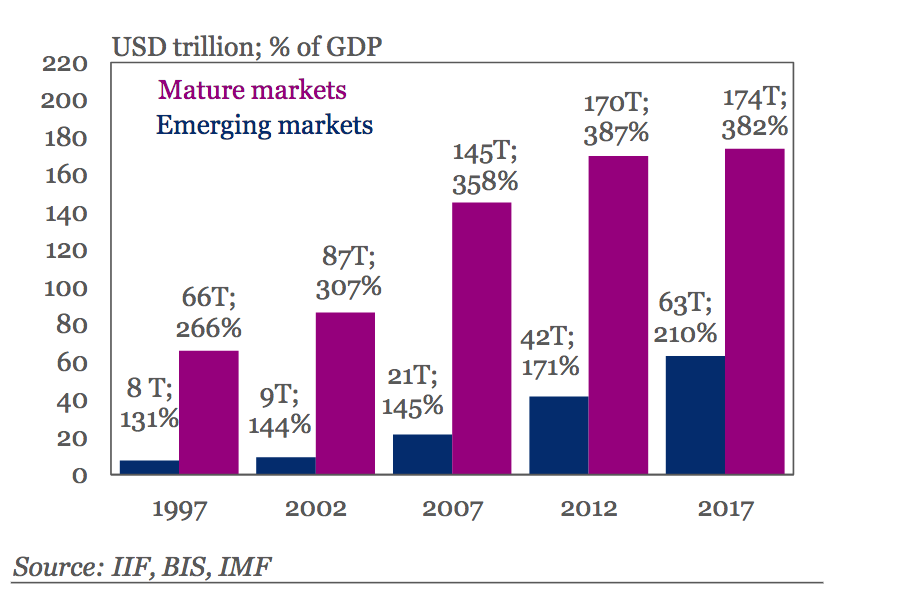Global debt rose to $237 trillion in 2017, highest level on record
Governments, businesses and individuals added $21 trillion of debt last year, bringing the total outstanding debt around the world to $237 trillion, the highest level on record, a new report from the Institute of International Finance (IIF) found.
The report, which pulls data from the International Monetary Fund, Bank for International Settlements and IIF, found that around the world the share of debt is now more than 300% of the world’s gross domestic product (GDP). However, that number was slightly below recent levels, as increasing GDP growth has helped reduce the debt-to-GDP ratio.
“Still-low global rates continue to support unprecedented levels of debt accumulation,” officials from the IIF said in a release.
The group also noted that despite the fact that the overall amount of debt has increased, “the cyclical pickup in global growth and still-benign global financing conditions have helped bring debt ratios down slightly.”

IIF representatives also highlighted the weaker U.S. dollar as having “masked longer-term concerns about debt sustainability, particularly in emerging markets.” The reduction in debt to GDP came mainly from developed markets, such as the United States and Western Europe, but was an overall trend with 36 of the 49 countries in the survey’s sample recording a drop in debt-to-GDP.
The survey found that U.S. government debt is now 99% of GDP as a sector, down from 101.7% in the fourth quarter of 2016. The United States is expected to record a $1 trillion budget deficit by 2020, according to new projections from the Congressional Budget Office.
A number of emerging markets countries added significantly to their debt. Argentina, Nigeria, Turkey and China recorded the largest buildup in debt ratios, the survey found.
—
Dion Rabouin is a financial markets reporter for Yahoo Finance. Follow him on Twitter: @DionRabouin.
Read more:
Investors returned to risky emerging markets assets in March despite trade war fears
China may be doing more to reduce its trade surplus with the U.S. than Trump
Follow Yahoo Finance on Facebook, Twitter, Instagram, and LinkedIn.


